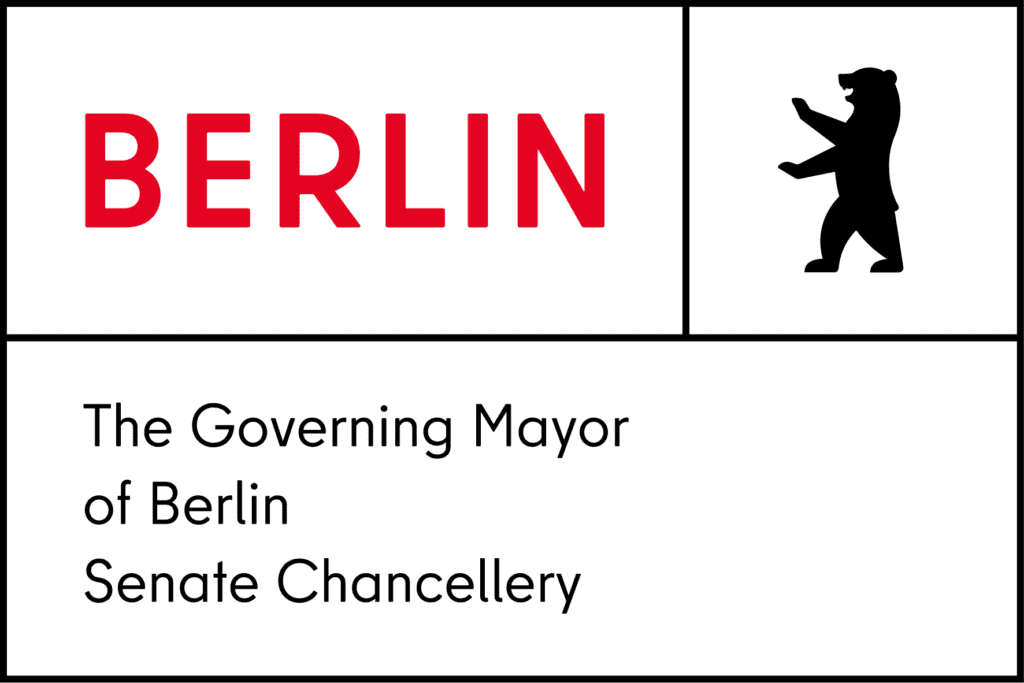When we saw our Kiezlabor being hoisted onto a truck by a crane for the first time, we not only knew that at a weight of six tons, this was no lightweight project we were dealing with but a heavyweight one, we also realized that things were now getting serious. Gone are the days of building, collecting ideas and testing materials – now the former shipping container has been transformed into a Tiny House, energy self-sufficient thanks to solar power, packed with digital exhibits and a full program, and ready for its first test in the wild.
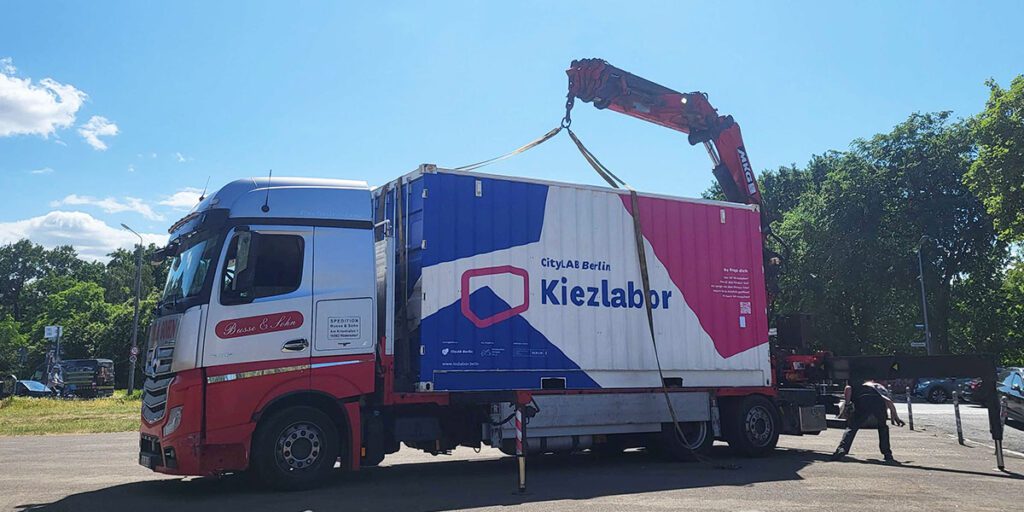
There wasn’t a lot of time to get used to this idea – because a few hours later, the word was out: the container doors opened for a series of exciting days at this year’s re:publica where we got to present a beta version of our Kiezlabor directly in front of the festival area at Flutgraben 1. Inspired by the re:publica motto “CASH”, from June 5 to 15, we delved into the question: “What does the city cost?”, hosting fascinating guests and events at the Kiezlabor. There were numerous highlights – here are some of them.
The kick-off: festival finale with music
Parallel to the Kiezlabor we had the pleasure of being part of the Berlin lab stand at re:publica, where we presented additional projects and the Berlin lab strategy Gemeinsam Digital: Berlin together with the partner network on behalf of the Senate Chancellery Berlin. One particular highlight at re:publica was also the talk between our director Dr Benjamin Seibel and Stephanie Kaiser, the Chief Product Officer of the German federal government’s DigitalService (now available for viewing on YouTube), which took place on one of the main festival stages. It was an outstanding event not just for us, but for our director, too:
“My personal highlight this time was actually my own panel with Stephanie Kaiser of the federal government’s DigitalService. Not only because it was very entertaining and well attended, but because I learned a lot myself: about the fact that we have to think much more about how we put laws into practice, and that excessive bureaucracy in administration is often an unintended side effect that comes about because these processes are not yet consciously designed.”
Dr. Benjamin Seibel, Head of CityLAB Berlin
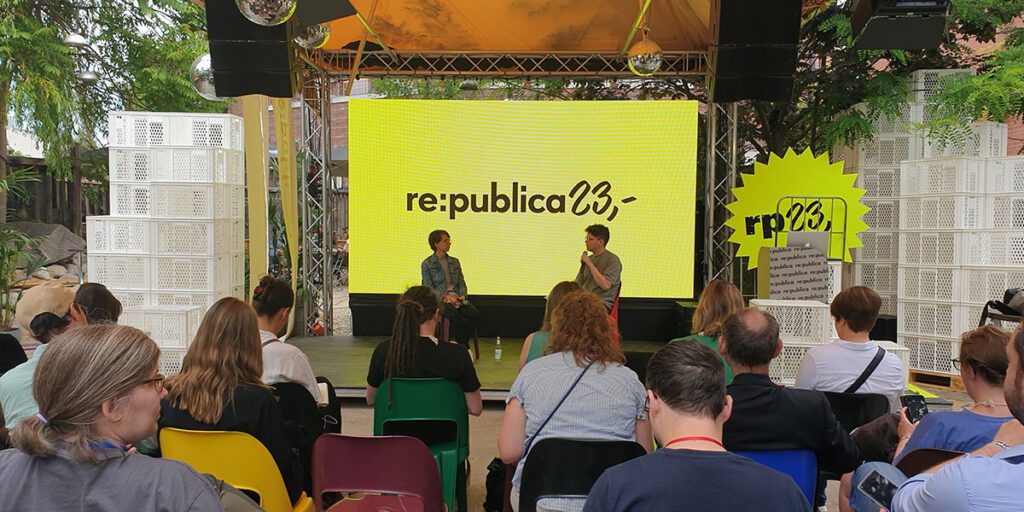

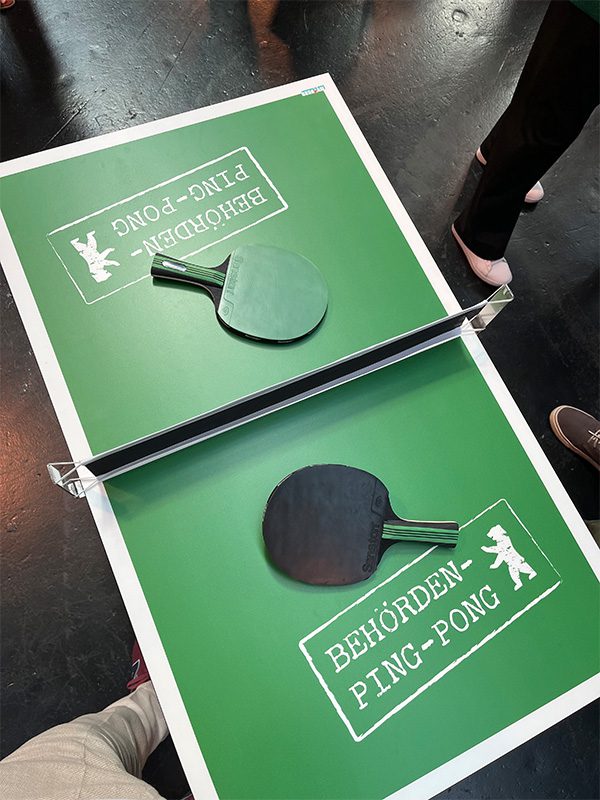
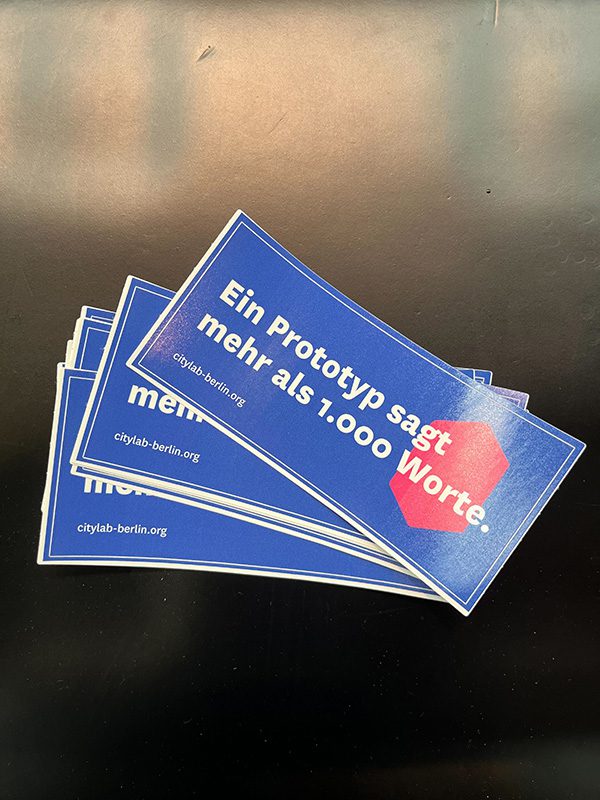
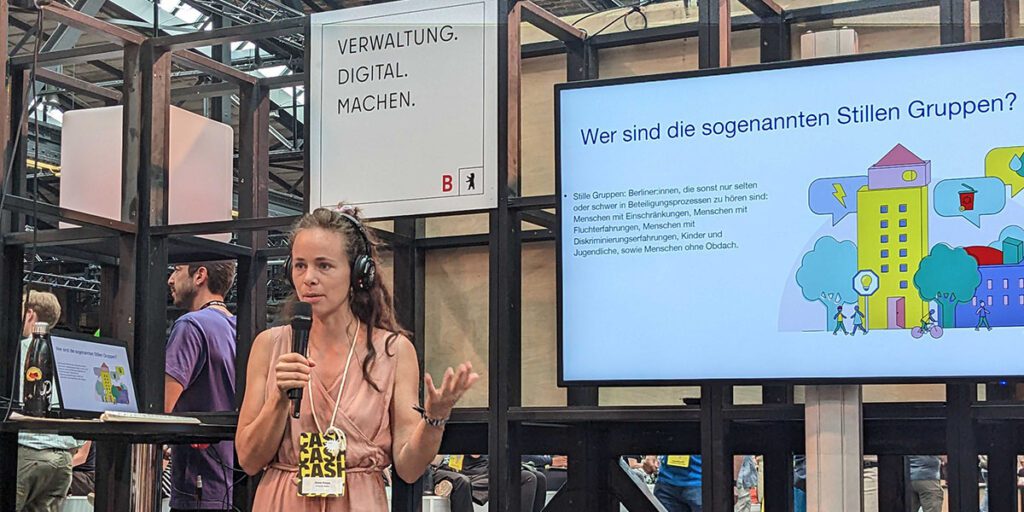
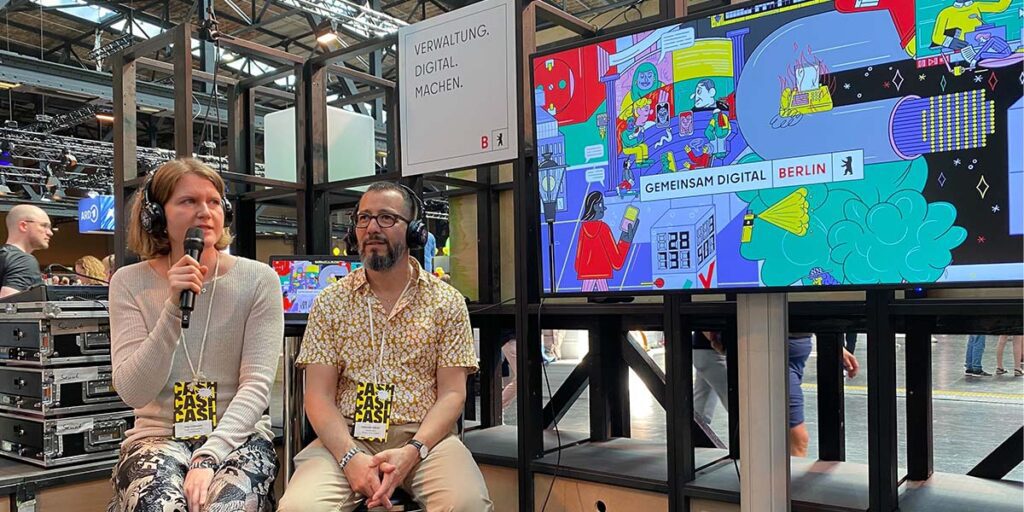
Our Kiezlabor kick-off took place at the end of the first day of re:publica. For our Kiezlabor team, who got to respond to all kinds of inquisitive questions and suggestions throughout the course of the day, this was not “closing time” but a slight sigh of relief: even after a short time, large numbers of visitors were gathering in front of our container wanting to explore it, starting off the evening with a free cold drink and music from the community radio station THF Radio. The sight of all this interest did make us feel a little proud – after all, this is just how we imagined the Kiezlabor in action!
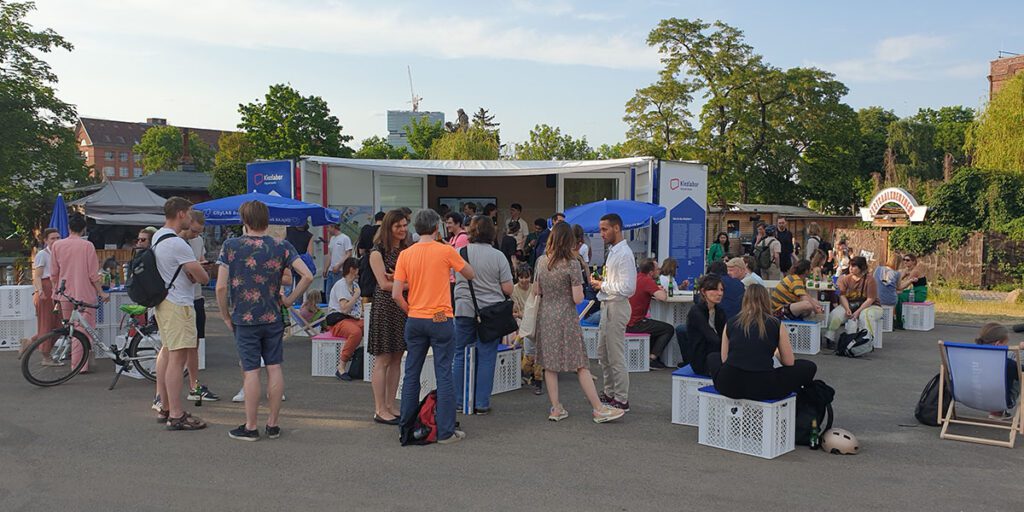
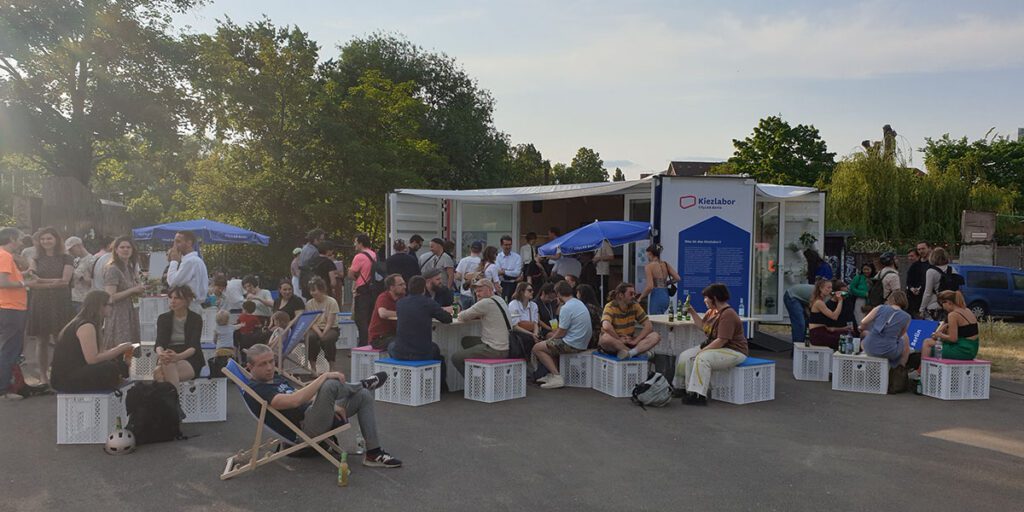
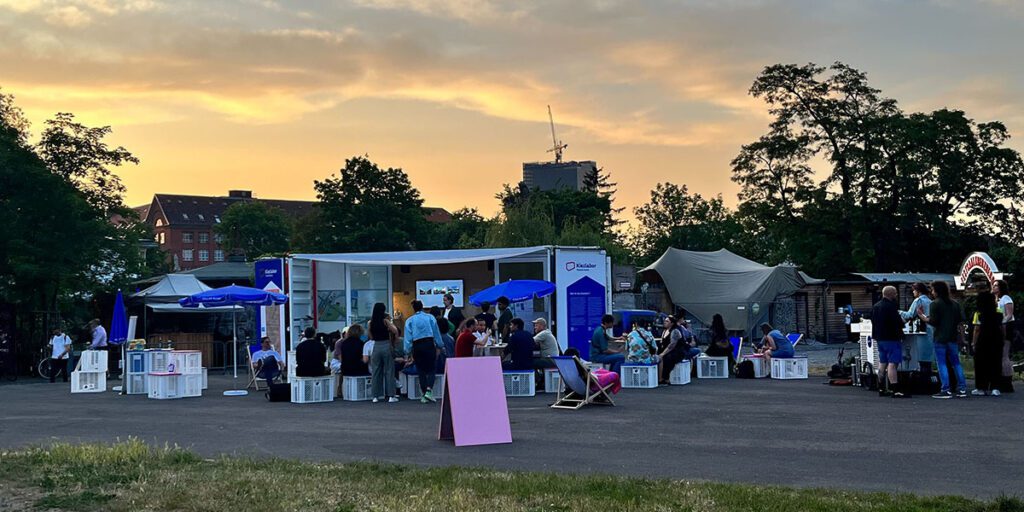
“Without you, we’re just a container”
True to our Kiezlabor motto “Without you, we’re just a container”, we hosted numerous free talks and workshops during the course of re:publica and beyond, focusing primarily on participation and feedback. After all, the Kiezlabor is a platform for citizens, neighborhood residents and the Berlin administration, as well as actors and associations who are committed to community-oriented urban development with the help of digital tools – and it thrives on people engaging in dialog in the flesh.
This diversity was reflected in the program, too – from open workshops and workshops about gaming on recycled laptops to art installations and insights into topics coving everything from neighborhood funds to experimenting with artificial intelligence: We hope there was something interesting for everyone.
During the re:publica offstage program, for example, we found out at the creative studio Urban Heat Studio about how heat in cities is increasingly affecting people’s health. The coding academy 42 Berlin showed us how coding can be made accessible for more people for free on a peer-to-peer basis, while the collective Lootopia / Dycle told its audience how baby diapers can be transformed into fertile humus to become part of a resource-saving cycle. After diapers, coding and heat, we found out from Changing Cities e.V. how Kiezblocks – traffic-calmed residential areas – work and how to apply for them in your own neighborhood.
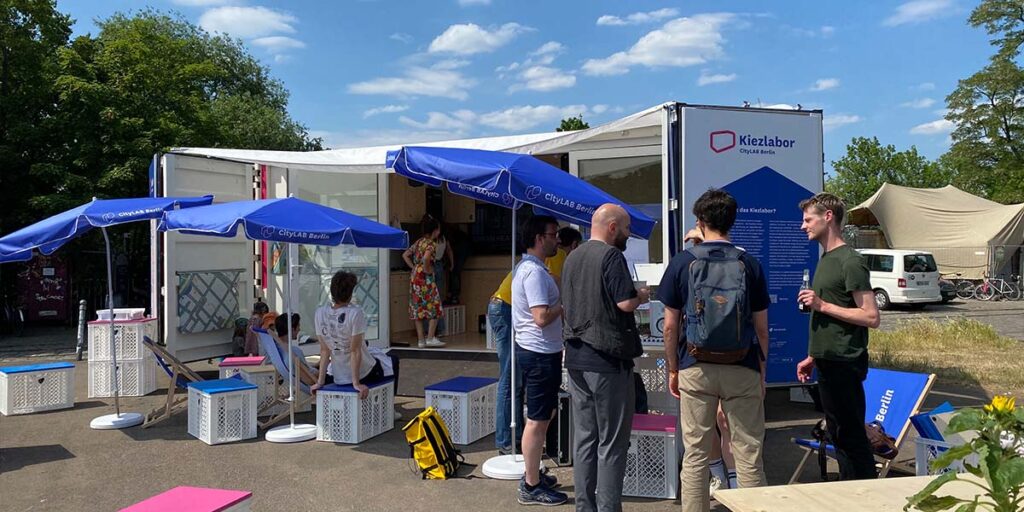
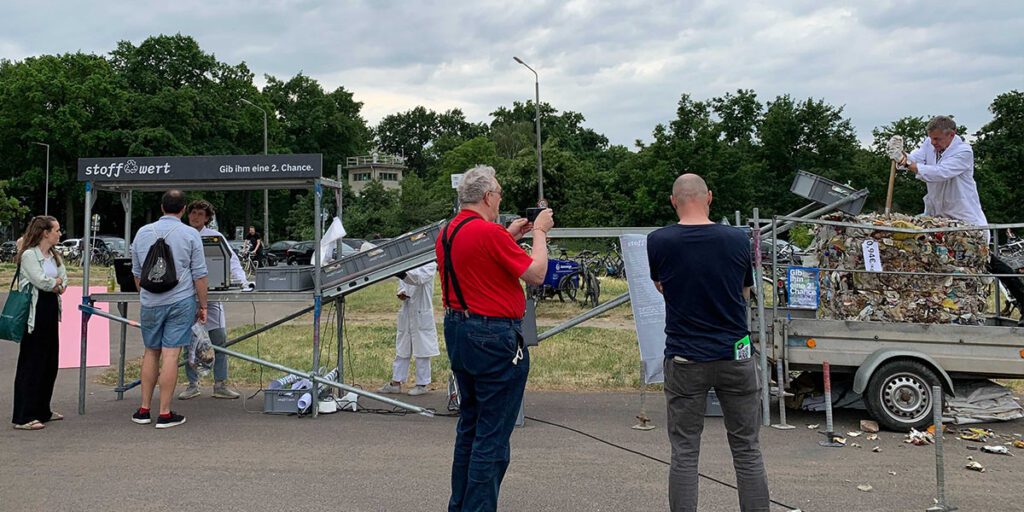
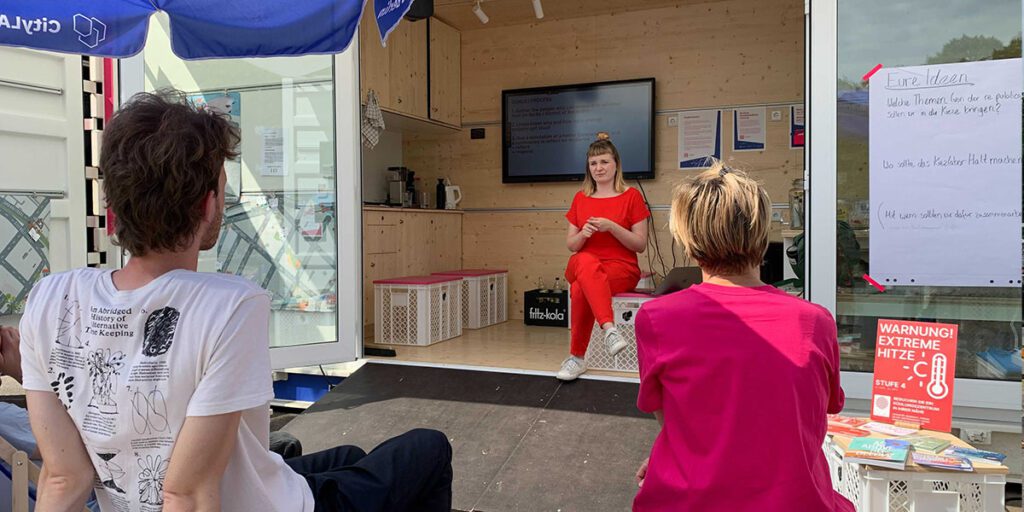
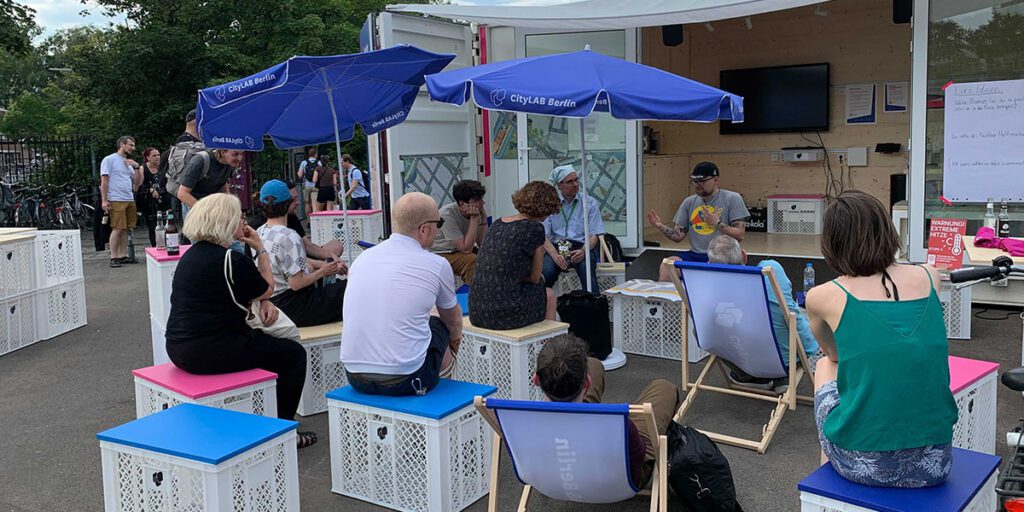
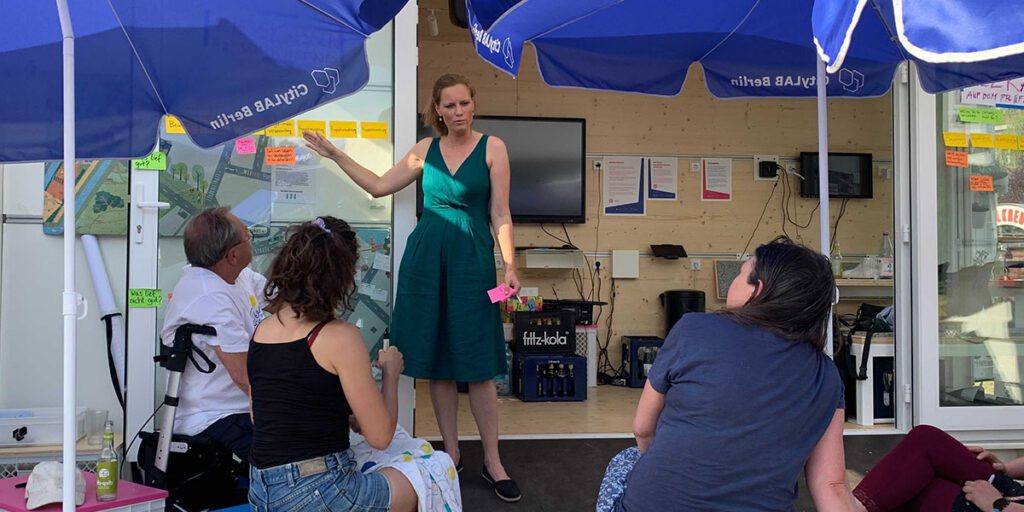
In addition to these talks, the format of the open workshop was particularly popular: here, participants got to work with the sound artist Marten Seedorf of the music school lev, using self-made experimental microphones to search for sounds in the immediate vicinity. Visitors to the Kiezlabor were also able to look for clues by means of neighborhood mapping, where items found in the immediate vicinity offer a new perspective on people’s own neighborhood.
There was also great joy during the visit to Friedrichshain-Kreuzberg citizen center vocational training department, who moved their services outside, as it were, where they processed forms all day without appointments or registration.


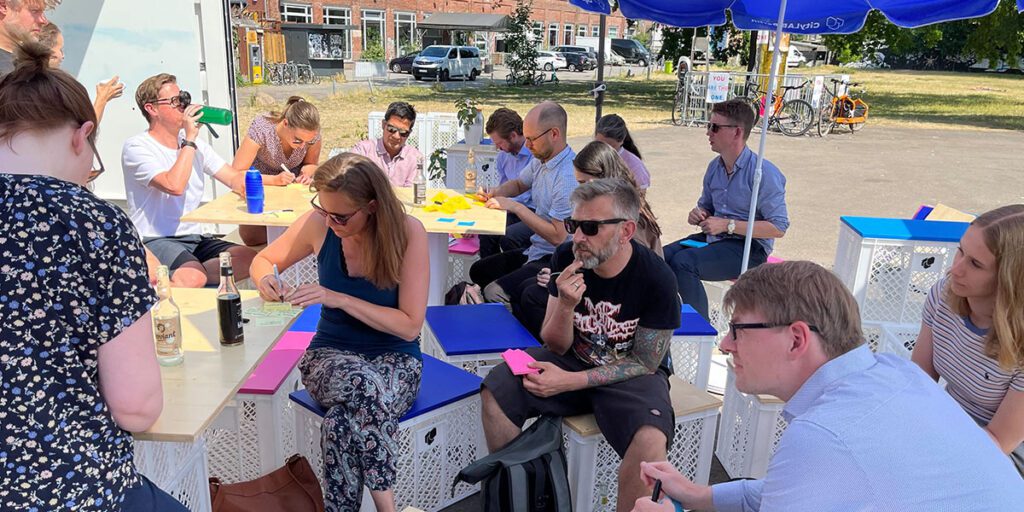

Here’s what we learned for future locations
We found out a lot from our Kiezlabor test – not just how to get our container opened and set up a little faster every day, but also that it’s already going down pretty well in the neighborhood. “We’re now a well-coordinated team, and every day we’ve gained more experience in setting up the Tiny House for digital transformation,” says our colleague Anne.
“Mit jedem Tag haben wir die Umgebung des Containers in eine kleine Oase mit Schattenplätzen, Liegestühlen, bunten Kisten und Pflanzen verwandelt. Wir haben gelernt, dass das Ganze bereits so einladend ist, dass Leute aus dem Kiez gerne auf einen Besuch, zum Programm oder einfach zum kurzen Durchatmen und Kaffee trinken vorbeischauen.”
Anne Kruse, Kiezlabor Project Manager
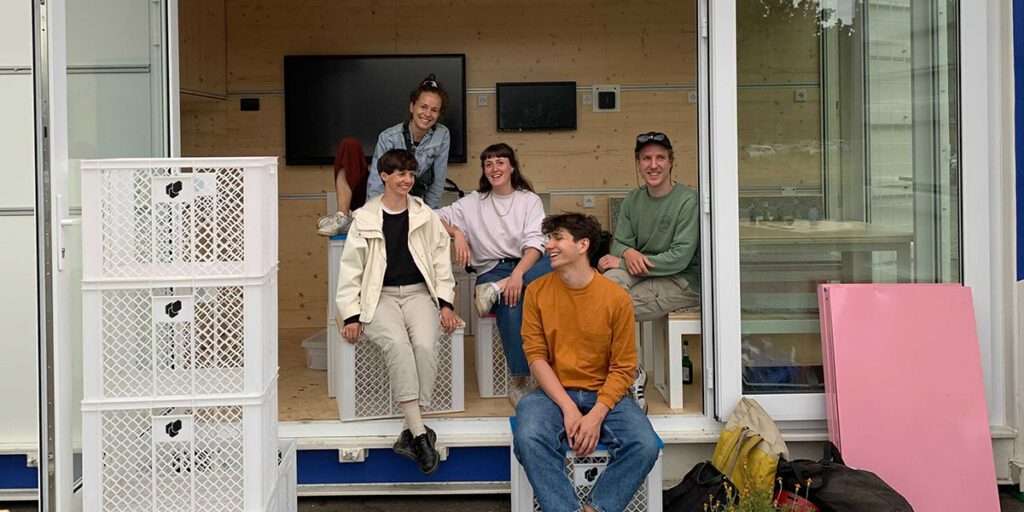
In addition, lots of suggestions are already waiting in our feedback box on how we can improve our Kiezlabor – we look forward to taking a closer look at these and we would like to say THANK YOU to everyone who visited us and helped us shape the program on site.
This means we’re all set and ready to shed beta status and officially open the Kiezlabor at the CityLAB summer party on June 29 . Here we will also be announcing the other locations. Want to see the Kiezlabor in action? If so, sign up now free of charge for the summer party – we can’t wait to see you there!
